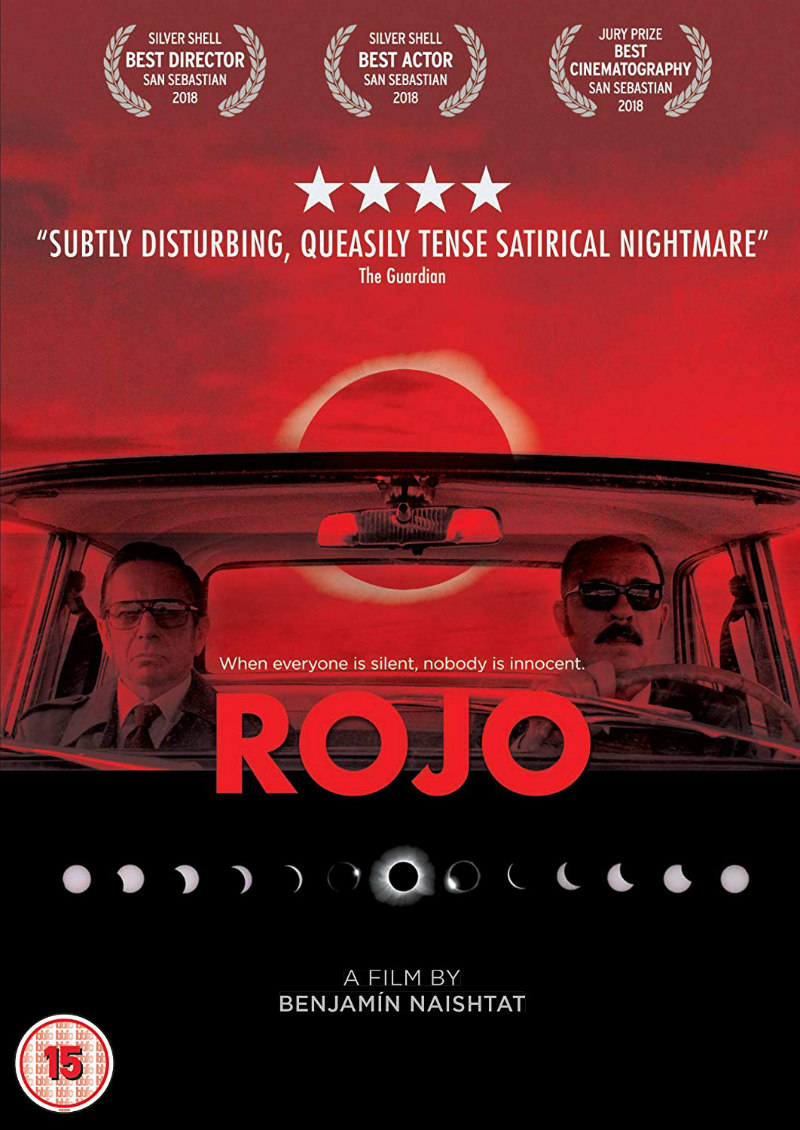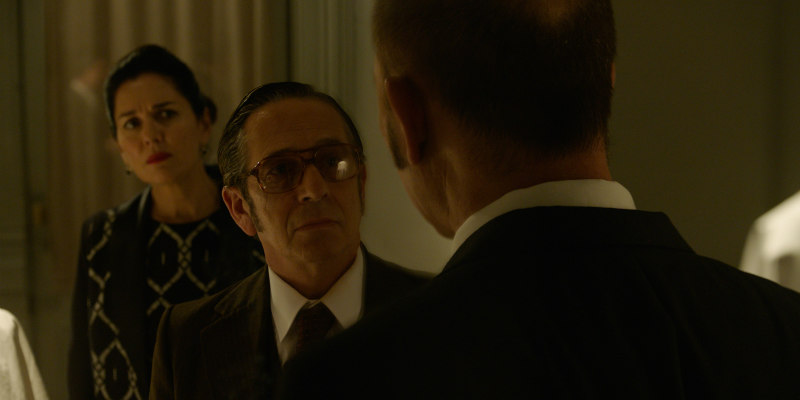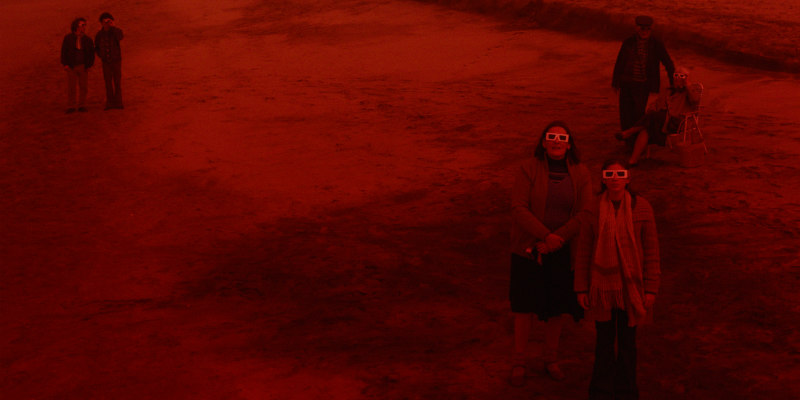Review by
Benjamin Poole
Directed by: Benjamín Naishtat
Starring: Darío Grandinetti, Andrea Frigerio, Alfredo
Castro, Diego Cremonesi

There’s a useful axiom for the fashion conscious which rhythmically goes,
"red and green should never be seen." As a rule of thumb for the sharp
dressed man it’s a good ‘un. Both primary colours are like hot sauce, with
the potential to overwhelm. For easy evidence, witness how the bright four
colour basics of their comic book sources are grimly muted in superhero
films (my pet theory as to why the recent Superman films went tits up: not
only did Henry Cavill not act like Kal El, he didn’t even dress like him).
The chromatic maxim is one that I reckon could be applied more strenuously
to cinematography: think of the ugly green wash of horror films circa 2005,
or the rude reds that crews employ when the film needs that ersatz giallo
mood. Used sparingly, these colours guide and impress the eye, but when
employed as a matter of course they stultify.

But here is Benjamín Naishtat’s fabulous Rojo, a political thriller-come-drama, whose focused eye makes the mundane (conversations, a walk about the beach) deeply riveting, almost surreal in their everyday intensity. As the title suggests, red is a colour significant to this 1976 set Argentinian film: thematically the title refers to the lethal communism of pre coup d'etat Argentina, and pictorially the shade is weaved throughout the delicious tapestry of Rojo, a crimson thread which ties together the disparate moods and plotlines of this ace flick in a thick scarlet knot, ready to be unpicked by its eager audience.
[ READ MORE: Interview - Rojo Director Benjamín Naishtat ]
Like a collection by Piet Mondrian, Naishtat’s (who is a veteran of
eye-catching shorts) film uses red tones, and red narrative motifs (a subtle
example occurs when a teen character disabuses her rapey boyfriend from sex
by telling him she’s on her period), with an evocative charge.

Our guide through this world of implicit dangers is Claudio Morán, a community leader and successful lawyer played by Darío Grandinetti (the great star of Argentinian film, but who always reminds me of Cassandra’s dad in Only Fools and Horses). One night, with skin crawling authentic awkwardness, Claudio gets into an argument with some bloke at a restaurant. One thing leads to another and, en route to their home, Claudio and his wife once again encounter the beleaguered diner, who ends up shooting himself in the head. The zeitgeist is fraught: the pressure is unbearable, and the people are either desperate or, like Claudio, affect a survivalist passivity in order to just get along. Except now Claudio has a dying body (and red) upon his hands. However, this is Argentina in the mid-70s, and people just vanish all the time here (accordingly there were up to 30,000 people whom the government regarded as political dissidents and got rid of, a body of people chillingly referred to as "los desaparecidos"), a fact of life outlined by the film’s opening depicting a vacated suburban house which the neighbours cheerfully pop in and out of, taking anything of value the recently disappeared has left behind. One more body isn’t going to be missed surely…

The blackly comic Coen Brothers-eque set up of-ordinary-guy-makes-fatal-mistake-which-may-or-may-not-return-to-haunt-him sets the film into an insidious motion which prowls about coup d'état Argentina to take in Claudio’s teen daughter, the family of the disappeared diner and a hotshot detective who could be on our man’s case, while in the background the military junta in charge quietly consolidates power. Like the best politically interested dramas, Naishtat’s film is suggestive rather than didactic, depicting the borrowed time of these lives through dense period detail, and creating vivid empathy with his dazzling visual set.

Rojo is on MUBI UK now.

